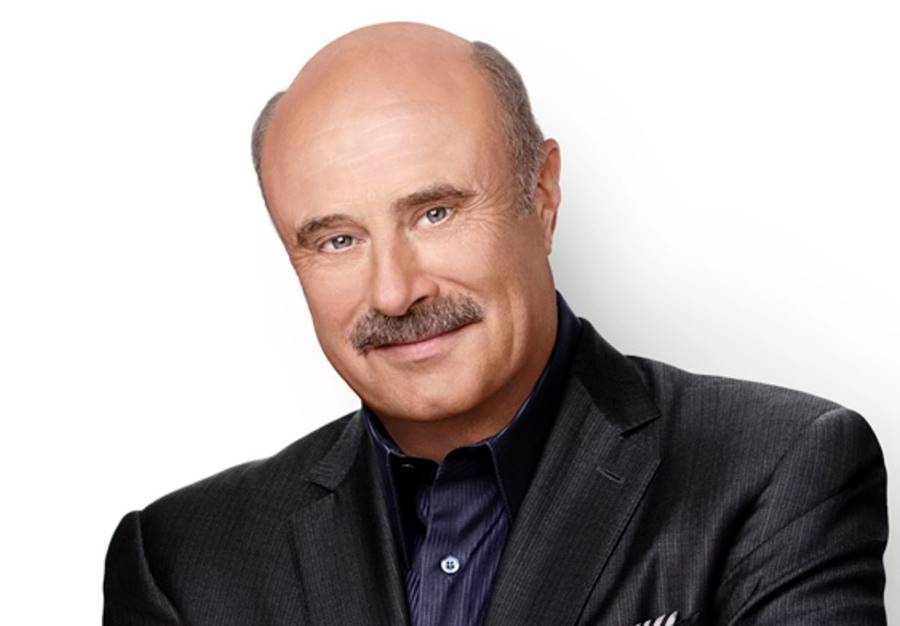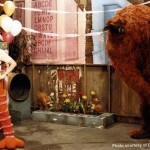
By Jae-Ha Kim
Chicago Sun-Times
February 10, 2001
Until Oprah Winfrey got wrangled into court by a group of Texas cattlemen in 1997, psychologist Phillip McGraw was best known in legal circles as the courteous but firm co-founder of a Texas legal consulting company.
These days, thanks to regular Tuesday appearances on Winfrey’s talk show and a column in her magazine `O,’ McGraw is a burgeoning star, and he’s taking his son Jay, 21, along for the ride. McGraw has written several books, including Life Strategies: Doing What Works, Doing What Matters (Hyperion, $21.95). Now Jay has entered the self-help market with a book for teens: Life Stategies for Teens (Fireside, $14), putting down the cold, hard facts of life, much like his dad.
Oprah calls McGraw “Tell It Like It Is, Phil.” With a minimum of hyperbole, McGraw gets his point across bluntly and with little sugarcoating. But you can call him by his showbiz name: Dr. Phil, that is.
Sure, it may not have the same cachet as, say, Madonna, Sting or Oprah, but the shortened moniker indicates that McGraw has reached that celebrity status where a last name is irrelevant.
“I think it’s true that most of the people who may recognize me don’t know my last name,” says McGraw, 50, chatting from his office in Irving, Texas. “I was a behind-the-scenes guy before I met Oprah. I had a beaten path (between) the courthouses in America, and that was about it.
“I have to tell you, though, I have really found that the American public is just super kind, friendly and considerate. People will come by for a brief moment if they see me in a restaurant, but they’re never anything but polite. They seem to have respect for themselves and for me.”
Of course, McGraw’s sleepy Texas drawl puts most folks at ease, so much that he insists he does think much faster than he speaks.
McGraw believes life is negotiable if we follow a few simple laws of life.
“Americans have gotten sick to death of all these soft-babble buzzwords that have been served up over the past 15 years,” he says. “We talk about your inner child and self-esteem and say that if something happened in the past, then it’s not your fault. I don’t mean to trivialize trauma in anyone’s early life, but if you’ve got a problem, deal with it. And if you can’t handle it alone, then get help.
“I think the reason people may be responding to me is because I’m telling them what they need to hear rather than what they want to hear.”
Married for 24 years to Robin, a homemaker, McGraw is also father to Jordan, 14. But it’s Jay, a senior at the University of Texas at Austin, who has taken his father’s help-your-self philosophy to heart.
“I grew up with my dad for 21 years, so I definitely took a lot of what he said for granted,” Jay says. “As with most teens, I dismissed what he said. I knew his book had great advice in it, but I also knew that when a parent or an authority figure writes something, kids kind of become resistant to the idea regardless of whether it’s right or wrong. That’s why I wanted to write a book for teens.”
Jay’s book came as a surprise to his parents, because while he was many things – a jock, a licensed pilot, a black belt in tae kwon do, a certified scuba diver and an avid golfer- studies were never at the top of his list.
“If you would’ve told me a couple years ago that Jay was going to write a book, I would’ve thought you were joking,” McGraw says. “Two years ago, we couldn’t even get the boy to read a book. He was the ultimate jock. Class was just something he went to when he wasn’t in the gym.”
But when Jay blew out his knees, his dreams of playing basketball ended.
“I was faced with the realization that I had created my experience thus far as an athlete and that was now gone,” Jay says. “And if I didn’t do anything about it, no one was going to do anything for me. No one else’s life was going to stop just because a phase of my life had ended, so I had to make a decision. And that was a turning point for me.
“I remember coming home with a poor grade on a math test, and my dad asked me how come I didn’t do better. And my answer was that I didn’t know I wasn’t prepared: What I wanted teens to get from my book is that they can control their lives and have the power to influence their friends and family in a positive way.”
Both McGraws say even though they have written the books, they don’t always follow their own advice.
“It’s a day-by-day learning experience,” McGraw says. “Sometimes I don’t listen to myself, but I keep on trying. That’s all I can ask of anyone, myself included.”
Jay: On teens and sex
If you want to have sex, Jay McGraw offers this: Think before you do.
In his book, he writes, “A friend of mine has a T-shirt that says: `Love is fickle, it goes away; But HERPES is here to stay!’ On the back it says: `And AIDS will freakin’ kill you!’ Bottom line: You can’t wash that stuff off! There’s no pill you can take and no `oops!’ or do-overs here.
“You create your own experience, and you teach people how to treat you. Think that through, and see what it tells you about the price being charged against your body.”
You may be familiar with the 10 Commandments. But do you know about Dr. Phil’s laws of life?
Here are some of them:
YOU EITHER GET IT OR YOU DON’T
Become one of those who gets it. You create your own experience. Acknowledge and accept accountability for your life. People do what works. Identify the payoffs that drive your behavior and that of others. Life rewards action. Make careful decisions, then pull the trigger. There is no reality; only perception. Identify the filters through which you view the world. Life is managed; not cured Learn to take charge of your life.





